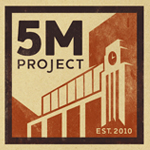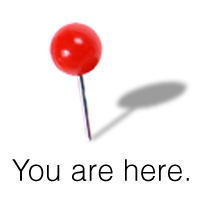Professor Robert S. Kaplan (Harvard Business School) has written a book on leadership, management and managing oneself that is readable, practical and highly actionable. It is based on an earlier article by the same name that appeared in the Harvard Business Review. While written for a general audience, the content is equally applicable to those running nonprofit organizations, especially larger ones. Seekers won't find mystical language or anything revelatory in terms of conceptual frameworks. Rather, the emphases include the criticality of … [Read more...]
Is crisis necessary for change?
While it can be invigorating to hear stories of how organizations overcome crisis, we started to wonder: why does crisis tend to be such a common motivator for change? What implications might a crisis have on the changes effected, and how might that crisis affect an organization in the short and long term? In this post, Gail Crider and Sunny Widmann share their experiences and ideas about how crisis impacts change, for better or worse. Sometimes, but it’s risky. By Gail Crider Crisis generally means loss of strategic perspective, … [Read more...]
Stories from the Field: Intersection for the Arts
For many of us, physical space dictates the work we present and how we serve our communities. Many artists and organizations have found creative and alternative ways to use theaters, symphony halls and galleries, but what if we abandoned the idea of traditional spaces altogether? Could reaching outside our comfort zone help our work reach more people? Letting go of traditional venues provides an opportunity for the arts to take on a new role in the community – from the audiences we serve and where we serve them to the type of work we present … [Read more...]
What are we doing here?
Listening is an important aspect of our jobs in the arts and culture field. (It's good advice for anyone really.) We are always listening for feedback or new ideas that we can use to help improve our own work. The problem, of course, is that it's not always easy to separate the signal from the noise. My father used to say, "There's a great deal of talk that goes on but very little conversation." One of the perks of working at NAS is the frequent opportunity to listen to some incredibly bright and interesting people – my colleagues in this … [Read more...]
About Field Notes
Listening is an important aspect of working in the arts and culture field. (It's good advice for anyone really.) At NAS, we are always listening for feedback or new ideas that we can use to help improve our own work. The problem, of course, is that it's not always easy to separate the signal from the noise. One of the perks of our work at NAS is the frequent opportunity to listen to some incredibly bright and interesting people – our colleagues in the office as well as leaders in the field and experts outside the field. These are great … [Read more...]
Is social media changing your model, maybe?
Summer's winding down, and I'm sure most of you have heard Carly Rae Jepsen's "Call Me Maybe" roughly 2,000 times by now. Maybe you're sick of it. Maybe it's still catchy and you love the endless stream of lip-synced tribute videos. Maybe you wonder why this song, of all the songs out there, has caught on like wildfire. A few years ago I heard an interesting NPR piece positing that this kind of popularity might be attributed to derivative content, citing Ke$ha's "TiK ToK" and Avatar as examples. A recent New York Times article about "Call Me … [Read more...]
Bright Spots Leadership in the Pacific Northwest
This is a report from the Paul G. Allen Family Foundation about arts nonprofits in the Pacific Northwest that are thriving during these difficult economic times. There are 12 organizations featured here, and I am proud to say that Literary Arts made the cut! What's interesting about this report is how each organization adapted and changed. The themes that emerge, I think, have a lot to do with attitude: attitude toward constituents and attitude toward change. Read Bright Spots Leadership in the Pacific Northwest » … [Read more...]
Can brainstorming be an effective tool in building a culture of collaboration and innovation?
My teenage son recently asked me during a conversation about brainstorming, "do we really need rules for everyone to follow?" I had just finished reading Jonah Lehrer’s "Groupthink" in The New Yorker and recalled his remark, "The fatal misconception behind brainstorming is that there is a particular script we should all follow in group interactions." I have been part of many effective brainstorming sessions (at NAS) and just as many nightmarish ones (not at NAS). In my quest to learn more about the dynamics of the process and if there truly … [Read more...]
In Defense of Logic Models
There has been a great deal of conversation, debate (and informational video) around logic models in the past few weeks. Ian David Moss, whose blog post "Creative Placemaking Has an Outcomes Problem" started much of the discussion, wades back into the fray with this incredibly thoughtful response to many of the criticisms levied against what he calls a "tool of tremendous power whose potential is only beginning to be unlocked." Read the Huffington Post piece "Ian David Moss: In Defense of Logic Models" » … [Read more...]
Collective Impact
As in other nonprofit sectors, most energy and resource in our sector is focused on what the authors call "isolated impact" at the organizational level. Can the full value of arts and culture in society, to enhance lives and deepen democracy, be realized through this approach or do these complex possibilities need a different strategy? When discussion in the cultural field turns to collective action, it tends to turn toward lobbying and advocacy and changing public opinions of the arts. This article suggests a different focus for collective … [Read more...]
Shut Up and Take My Money: Fans Should Hire Artists
We've been having some interesting discussions with cultural leaders about the relevance of cultural organizations in their current forms. This article adds some food for thought. Kickstarter and similar crowdfunding sites are becoming platforms for "intermediaries" as well as artists and producers. Individuals are taking on the roles of commissioning, producing, and presenting new work and events. Could your organization's role or model be replaced by a pro-am, freelance model given the new platforms? If not today, are trends pointing towards … [Read more...]
Design Thinking Isn’t a Miracle Cure, but Here’s How It Helps
With that helpful and perhaps needed disclaimer out of the way, writer/designer/consultant Helen Waters pens a lengthy and thought-provoking dissection of what design thinking isn't, what it can't do, clues to why it has been at times oversold...and why it is still well worth considering the real value it provides. And why designers may have long since learned to walk in the opposite direction when some folk use the word. … [Read more...]
Charities’ Zero-Sum Filing Game
The minimalist ratings of nonprofit organizations, using overhead and fundraising ratios, are deeply flawed. Are we collectively making the situation worse by shaving the numbers? A recent study found that over 40% of nonprofits report zero fundraising expenses, which suggests nonprofits can't be trusted to share information in the public interest and the rating agencies are all that more essential. Our collective actions are feeding the current system rather than demonstrating its irrelevance through honest, open and more comprehensive and … [Read more...]
Putting the community in control of programming
A startup company, Tugg, has an interesting take on allowing the community to "pull-through" programming for movie theaters. The service is still in beta testing so its reach and types of participants are limited for the moment, but it is interesting to imagine where it could go. What could a similar community-driven approach mean for your organization? How would you translate your organization's role in a community-led model where you are a facilitator rather than the central decision maker? Tugg, The Social Movie Theater Startup, Uses … [Read more...]
Michael Norton: How to buy happiness
How would the world be different if we could get all of our donors to watch this film? Michael Norton, Associate Professor of Business Administration and Marvin Bower Fellow at Harvard Business School, has been an outstanding faculty member for NAS on Strategic Marketing, and his TED talk is worth watching to find out what really makes you happy. View Mike's talk, "How to buy happiness," at Ted.com » … [Read more...]





